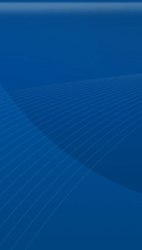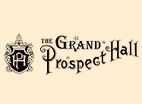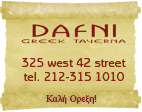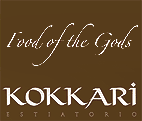Where were you born and where did you grow up?
I was born in New York City at New York Presbyterian Hospital to Kathryn and Vasilios Petratos. For the first several years of my life I grew up in Whitestone, New York. When I was just entering first grade my parents moved me and my two older brothers, Gerasimos and Nicholas, to Port Washington, Long Island. At the time it was a bit of a culture shock as we were only one of a few Greek families to have moved to this area of Long Island. My parents however where determined to keep our Greek culture and heritage part of our lives. We grew up speaking only Greek in the house and did not really learn English until we entered school. From Port Washington, my mother would drive us twice a week to Greek School at Saint Nicholas Greek Orthodox Church in Flushing, New York. We were also involved in the Kefalonian Society, “Kefalos,” and attended Greek dancing at “Kefalos” every Friday night. We were also very fortunate in that our parents made every effort to send us to Kefalonia every summer for two to three months, where we were not only able to interact and develop strong bonds with our relatives, but where we learned to appreciate our heritage even more.
Who or what were the main influences in your life?
If one was to ask my parents how they would describe me, they can be sure that the first words out of their mouths would be “very inquisitive, head-strong, and determined.” However, it is my family who has ultimately influenced who I am today. Having grown up in a Greek home, the values of my parents have shaped my life. Living with and learning from Greek parents has not been easy, but it has its advantages. Being educated and a genuinely altruistic person, who is both well-rounded and active in the community is very important to me. My interest in educating myself and contributing as much as I possibly can to society has been influenced by my father’s struggle as an immigrant in America. Having come here with nothing, he educated himself, eventually obtained a Ph.D. in Economics, became a Professor and is now Chairman of the Economics, Political Science & Philosophy Department at the City University of New York. For him to have come here with nothing and achieved so much in his life has given me the motivation to aspire to a demanding and accomplished career.
From my mother, I have gained the strength and confidence to overcome any formidable obstacles in life and I learned the true meaning of sacrificing oneself for the betterment of another individual. Having lost her own mother at a young age, she managed to continue her studies as a Spanish Major at New York University and eventually obtained her Masters in Spanish Literature. After having worked several years she made the decision to stay home and raise me and my brothers. Knowing that she sacrificed her own career to improve and enhance our lives makes me appreciate what I have even more. I can only hope that I will have as positive an impact on the lives of my own children.
Finally, I have also been taught that my heritage and upbringing does not make me any better or worse than anyone else. My childhood days were spent going to Sunday school every week learning about Greek Eastern Orthodox religion, but also attending public schools, where I thought of everyone as my friend and equal. I learned from my parents that even though some people are better at some things than others, these differences have nothing to do with ethnicity. I now understand the crime that exists in preventing the mixture of ideas, beliefs, and people. From a young age I also believed that men and women were equal because of my parents’ occupations as they were both teachers. I was taught never to have a set opinion, but always to explore the possibilities and to try to see all sides of an issue.
Why did you become a doctor?
I knew that I always wanted to do something in my life that would make a difference, as cliché as that may sound. I wanted to contribute to society and help people, but at the same time come home feeling good about what I had accomplished for the day. I honestly enjoyed many things in school, from science, to politics, even engineering and math. I pursued Math Research in High School, and even entered an engineering project in the Westinghouse/Intel Science competition. I had no medical doctors in the family growing up that I could look up to for guidance however I did have my parents’ exemplary commitment to education and altruism. I knew that I wanted to do something important and far-reaching and as my education progressed so did my continued interest in science.
I majored in Neurobiology and Animal behavior at Cornell which piqued my interest in the human body and its’ complex and intricate processes. I knew there was more to learn and Medical School was a way for me to pursue this goal and implement my knowledge into patient care. I also enjoy the fact that Medicine is a universal language. I can take my knowledge and expertise and help people in remote areas of the world if the need arises, or I can take care of people right here in my own community. Medicine knows no borders, race, ethnicity, or language, it is a tool I can always use for the greater good and that is what I love about being a doctor.
As a new generation doctor, how do you evaluate the state of health care in the US?
This is definitely not an easy question and one that can be answered in just a few sentences. It is a multi-factorial issue with many parts to the problem. We undeniably have great health care in the United States, but is it the best in the world? That’s also not such an easy question for me to answer because I have not visited many other healthcare systems in the world. Statistically, the United States does not rank as highly as other countries in the world, however from first hand experience in the hospitals that I have worked in, physicians, nurses and ancillary staff are excellently trained. We also have amazing technology and diagnostic tools that people come from all over the world to use and be treated with. However, all of these advantages come at a price and the question remains of how do we pay for it and how can we make the system more efficient.
As a society we must try to strike a balance between caring for individuals, no matter their economic means, but also striving to enhance our medical care and technology in the United States. Everyone in the end most likely will have to contribute in some way. Implementation of electronic medical records is one way of creating more efficient medical offices and hospital systems, where much of the waste is spent on constantly re-ordering expensive tests. Regulation of insurance and pharmaceutical companies must be implemented so that they can continue to serve the community but not drain it of its resources. Finally, physicians must be able to practice medicine in a way that they are best able to serve their patients through evidence-based medicine and not through fear of litigation. Also, what I think patients need to understand is the sacrifice that individuals take to become physicians. Many physicians are in school and residency for a minimum of 13-15 years and incur school loans from College and Medical school well over $300,000 and have difficulty paying these loans off till their mid-30’s when their training is completed. At the same time that costs are increasing to become a physician, their reimbursements are continually being cut, and office expenses, including paying for malpractice, is continually rising. At some point if this does not change or is not addressed it will be very difficult for physicians to remain in private practice and the traditional model of a patient coming to see a doctor in his/her private office will cease to exist. Patients will be forced to see physicians in hospital-based clinics where the doctor-patient relationship will change dramatically due to the high volume of patients physicians will be forced to see in order to sustain these outpatient clinics.
With all of these problems I still have great hopes for our medical system, but it will take time and effort and many perspectives to make this system better. It is not as black and white as people may believe. All parties must be willing to adjust and change in order for our healthcare system to move forward.
If you were a patient, what would the ideal doctor look to you like?
The ideal doctor, I believe, has to be inherently a kind and empathetic person who is willing to listen to a patient’s problem and spent the time to figure out a solution. A physician does have to be intelligent and must be able to master the medical knowledge needed to become a doctor, however, if this can not be translated into proper and appropriate patient care then I do not believe a physician can serve his/her community appropriately.
A physician is someone who will go the extra mile, stay the late night and respect the patient’s autonomy. There are very few professions where a person places so much trust and honesty in an individual and I believe it is a sacred bond that physicians must honor and respect. I hope to achieve these goals as I embark on my new career and I will always strive to provide continuity of care, kindness, integrity, loyalty and respect to my future patients and profession.
Has your Hellenic heritage influenced your professional conduct and in what ways?
Having grown-up as a Greek-American I understand and realize the struggles that our ancestors and relatives have made to create a better life for the future generations. Many Greeks, like my father and mother’s grandparents, who came to the United States did so to provide a better life for their children. Not knowing the language, many still managed to become successful in private industry, including restaurants, dry cleaners, floral shops, real estate and the fur industry. Their determination and struggle to do something better and survive has influenced my determination to do better for myself, my family and my community. Just in the same way that these Greeks contributed to their families and their communities here and in Greece, I hope to bring this same type of integrity and determination to my profession.
As a successful American you could and perhaps have joined major organizations that are focused more on mainstream society. Why HMS?
I am a part of many other professional organizations in my field of Ophthalmology, and in various professional women organizations as well, however the Hellenic Medical Society (HMS) holds a more personal place in my career. I have been coming to the events and lectures of the HMS since I was a student in High School. At that time my older brother was embarking on his own Medical School career and, as most younger sisters tend to do, I wanted to be part of this interesting organization and follow in his footsteps. I attended all of the lectures and made some wonderful friends in this organization that I still have to this day and they have guided me in my Medical School and Residency career.
The HMS not only provided an excellent social support system, but they were able to alleviate the costs of both of our Medical School careers through generous scholarships that we received throughout our schooling. Both my brother and I are very grateful for this social and economic support system that the Hellenic Medical Society provided and would like to remain part of this tradition and contribute to the future of other young doctors throughout our medical careers.
What qualities do you most admire or value in others?
I admire those individuals that are kind, honest, determined, and altruistic. It is not always easy to find all of these characteristics in people but I have had very good examples within my own family, including my parents, my brothers and my husband. I believe that if we can at least work on being better people everyday in our home and work environment we are working toward a greater good.
Who are your heroes in real life?
As I mentioned above my parents have had a major influence on my life. However, I have also had countless people, including many of my teachers and relatives that have guided my moral and intellectual development. I had fantastic teachers in High School who opened my eyes up to new things and always kept me thinking. I developed a love for the Spanish language, culture and poetry through my High School Spanish teacher. To this day I still use my Spanish to communicate with my patients because of how much I enjoyed learning it, and I can see how much they appreciate it when I make the effort to communicate with them. I also have met some amazing Professors at Cornell, environmental and wildlife conservationists such as Jane Goodall, novelists such as Toni Morrison and celebrities such as Magic Johnson. To hear these amazing people speak about their struggles, passions and illnesses and how they have overcome these challenges to do something better for society has been a true inspiration and thought provoking experience. I have also had wonderful teachers and mentors in Medical School and Residency who inspired me to learn more and constantly do more for my patients.
Where would you like to be in your professional and personal life 20 years from now?
Professionally, I would like to still be practicing Ophthalmology. I love working with my patients and I greatly enjoy operating and providing better vision. There is nothing better for me than taking out someone’s cataract, performing a Cornea transplant, or Laser surgery and seeing the patient’s reaction when they can see better than they previously could. It is such a satisfying and emotional experience. I would like to continue improving my skills in the next twenty years so that I can continue to provide even better and more advanced care. Personally, I hope for many years of health and happiness with my husband and family. I hope to be lucky enough to have many children and to be able to teach and guide them well as my parents were able to do with me and my brothers.
How do you spend your time outside of work?
I take a lot of pride in enjoying personal time and interests. Medical School, Residency and Fellowship definitely were stressful and intense environments and so it was always necessary for me to participate in sports and maintain an active life-style. I was always very active in intra-mural sports in school as well as running, cycling and going to the gym. Nowadays, with both of our busy work schedules, my husband and I mostly enjoy relaxing with friends and family. When we are not too exhausted we enjoy cooking dinner together, going out for coffee with friends and heading out East to Long Island to enjoy the wonderful beaches, while the weather is still good. Every opportunity we get we enjoy traveling and while we are here in New York we like going to concerts, shows, and Greek cultural events.
What is your idea of happiness?
My idea of happiness is when the people I care about most are, above all, healthy and doing well. I care deeply about my family and friends and I am most happy when I have the time and ability to spend quality time with them.



























